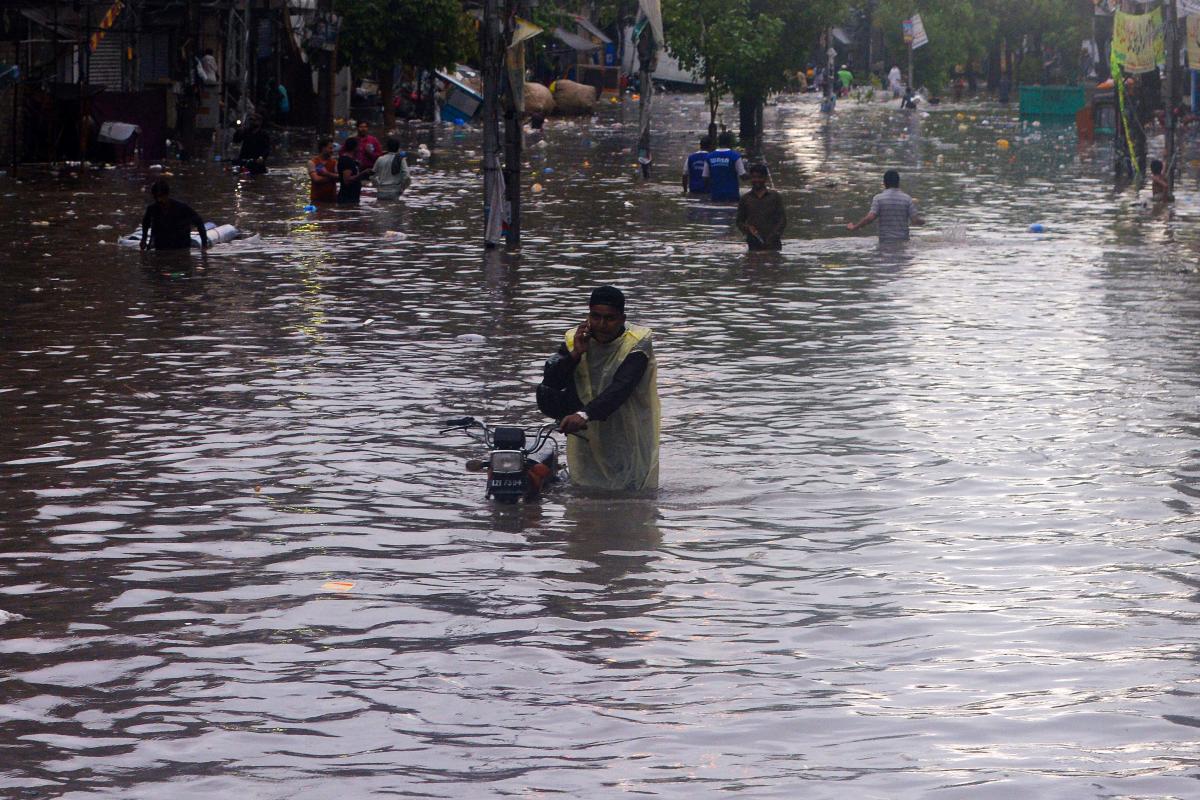One of Pakistan's southern provinces, Sindh, is bracing itself for worse to come as the country deals with catastrophic floods. Deluges from swollen rivers are heading for lower-lying areas, officials say, threatening more misery for millions.
The floods have killed nearly 1,000 people across Pakistan since June, while thousands have been displaced - and millions more affected. In this province - which has a population of almost 50 million - there has been a little reprieve from the rains.
But it will take more than a few days of sunshine to make life right again. This year's floods have been devastating - and their impact is far from being fully realised.
The infrastructure was already basic in many rural communities. Many of the roads are not tarred, and some bridges are worn out after years of little maintenance.
But this can't just be blamed on poor infrastructure. Pakistan's officials, who have dealt with floods many times before, say the hell unleashed by the heavens was nothing they could have prepared for.
"People around the world talk about climate change and something it's only a theory," said one official, who has been running a relief operation in Larkana, a badly-hit city.
"We are seeing for ourselves on the ground that climate change is happening. We've never seen such rains in one year…now we need to think about how we build for the future - how do we even start?"
The torrents from swollen rivers in the mountainous north are due to arrive in the coming days. But the devastation is not isolated to Sindh province.
The US, UK, UAE and other nations have contributed to a disaster appeal, but more funds are needed, officials say. Pakistan's Prime Minister Shehbaz Sharif has announced a grant of 10bn rupees ($45m) for those in the most affected Khyber Pakhtunkhwa province.
Every flood-affected family would be given 25,000 rupees ($112), Mr Sharif said, which would be disbursed within a week.
“33 million people had been hit by the floods,” Mr Sharif said. He said the losses caused by floods this season were comparable to those during the floods of 2010-11, said to be the worst on record.
Also calling for more aid, Pakistan's Foreign Minister, Bilawal Bhutto-Zardari, said: "I haven't seen destruction of this scale, I find it very difficult to put into words... it is overwhelming."
This year's record monsoon is comparable to the devastating floods of 2010 - the deadliest in Pakistan's history - which left more than 2,000 people dead. There is also growing concern about the looming cost of building back from this disaster, and the country's government has appealed for financial help from aid agencies, friendly countries and international donors.











